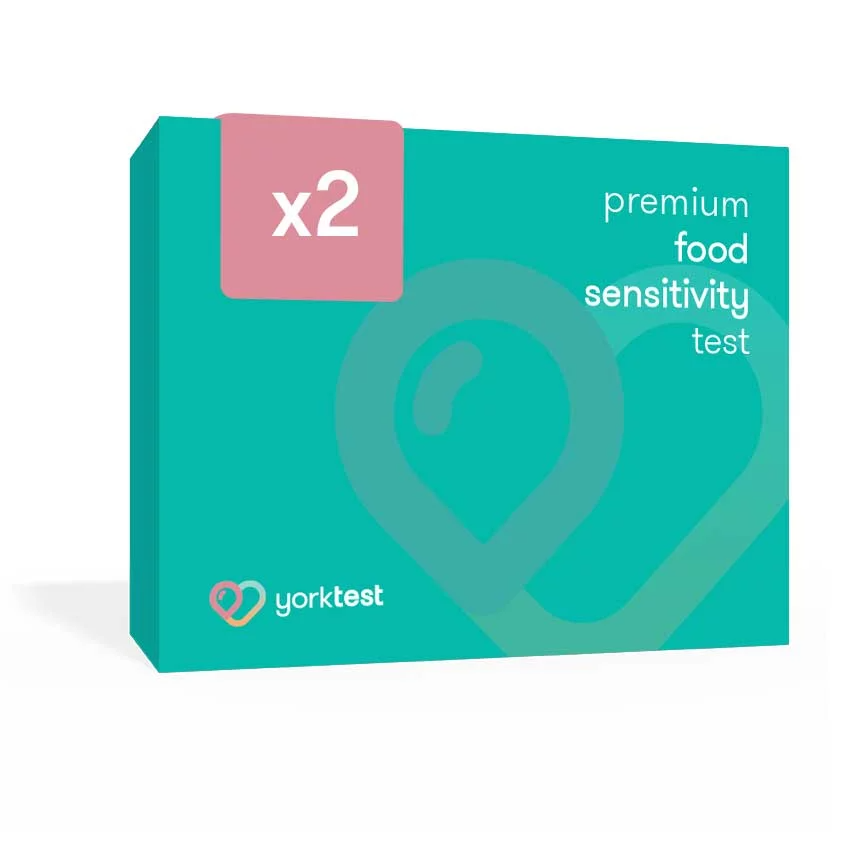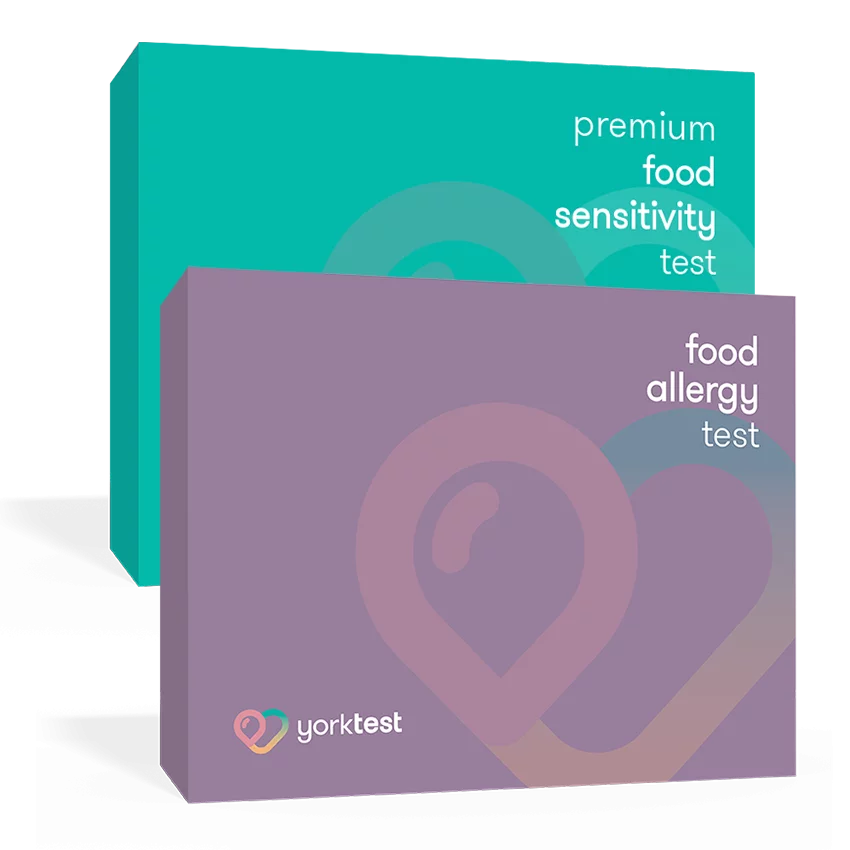
What Is A Food Sensitivity Test and How Can It Improve Your Well-Being?
Food is amazing, and some foods even carry a feeling of comfort with them, like the unforgettable aroma of mum’s freshly baked cookies. However, you know what isn’t fun? Food sensitivities.
A food sensitivity (or food intolerance, as it is more commonly known across Europe) is a type of reaction to a food that doesn’t involve the immune system. This means it is not classified as a food allergy: a term that is often incorrectly used interchangeably with “sensitivityâ€. Instead, it’s usually viewed as a digestive issue where the body has trouble processing a specific food, leading to unpleasant and uncomfortable symptoms. You may think that food sensitivities aren’t a big deal or that they won’t happen to you, but it is estimated that up to 45% of Americans have some form of food sensitivity.
While you may know what a food sensitivity is, what you might not know is how to identify one. Some people think the only way to find out if you are sensitive to a food is by looking out for symptoms and going on an elimination diet, but this isn’t the case. The most effective and stress-free way to identify a food sensitivity is by taking a food sensitivity test.Â
What Is A Food Sensitivity Test?
Put simply, a food sensitivity test is a form of test (usually done at home) that aims to identify a specific food that triggers your immune response, which is indicated by an increase in IgG antibodies. This makes the test an extremely valuable tool in helping to spot food sensitivities.
How It Works
You would be forgiven for thinking the food sensitivity testing process is convoluted and complex. However, the whole process is remarkably simple, at least on your side. All you have to do is order a test from us, and then it will be mailed to you. From here, you just need to take the easy finger-prick blood test, drawing about 2-3 drops for your sample.
Following that, just mail it back to us, we’ll examine it, and get back to you with your results within 7 days. If our test identifies a food sensitivity, we’ll also provide support and guidance to ensure you are on the right track.
When you test with us, we simply test for an IgG reaction, which will provide insight into whether or not you have a sensitivity.
What Is An IgG Reaction?
An IgG reaction is a type of food sensitivity. If your body reacts to a particular food, it may produce IgG antibodies against that food. These antibody reactions are different to IgE antibodies, which indicate an immediate allergic reaction.
Food Sensitivity Symptoms
Now you know how the tests work, you might want to know when you should consider taking one. Food sensitivity symptoms can often be tricky, as sometimes they go unnoticed. The most common symptoms relating to food sensitivities involve the digestive system. As such, symptoms can sometimes be put down to ‘trapped gas’. However, there is a range of other definite symptoms to look out for. Some of the most common digestive symptoms include:
- Gas
- Bloating
- Diarrhea
- NauseaÂ
- Vomiting
- Abdominal Pain
These are the only potential signs of a food sensitivity. Other symptoms can include:
- Skin Rashes
- Headaches and Migraines
- Fatigue
- Brain Fog and Difficulty Concentrating
- Constipation
- Joint Pain
- Mood Changes
Now you know what signs to look out for, another consideration is the potential for a delayed reaction. Food sensitivity reactions can take up to 72 hours to appear, so even if you ate something a couple of days ago, it could still be that food that is producing a reaction.
So, Why Do You Need To Test For Food Sensitivity?
Food sensitivities have the potential to drastically impact your life, so uncovering one and addressing it accordingly is crucial. Without a doubt, the best way to do this is by taking a food sensitivity test.
For a while, some people thought that you could address sensitivity by doing an elimination diet, swapping different foods in and out until you notice a reaction to a certain food, effectively using a ‘trial and error’ method. This is wrong for a number of reasons. Firstly, you are needlessly subjecting yourself to unwanted symptoms over a prolonged time. Then there is the possibility of getting it wrong, cutting out a certain food over fears that it’s problematic when your issues stem from another food entirely. There is also the fact that identifying a certain trigger is extremely difficult.
Breaking it down, food sensitivity tests are by far the most effective way to test for food sensitivity.
Why Is It Good For Your Well-Being?
Your diet and what you eat are extremely important. It affects your work, your family life, your hobbies, and how you live your life. Having a healthy diet can significantly improve your functional capacity, enhance your mood, and overall well-being.
Undiagnosed sensitivities may cause a range of persistent symptoms such as bloating, fatigue, headaches, skin rashes, joint pain, or brain fog, all of which can impact daily well-being. As such, addressing food sensitivities can massively improve your health and general well-being.
How To Get A Food Sensitivity Test
The good news is that getting a food sensitivity test is remarkably easy and very much within your grasp. You can order a food sensitivity test through us here at YorkTest.
Shipping is free on all of our orders, and we offer unbeatable support after taking the test. Our tests really are stress-free and help change your life. Furthermore, you also get an allergy test (where we test for High IgE antibodies) included within our sensitivity test, meaning you can get all aspects of your diet covered.







